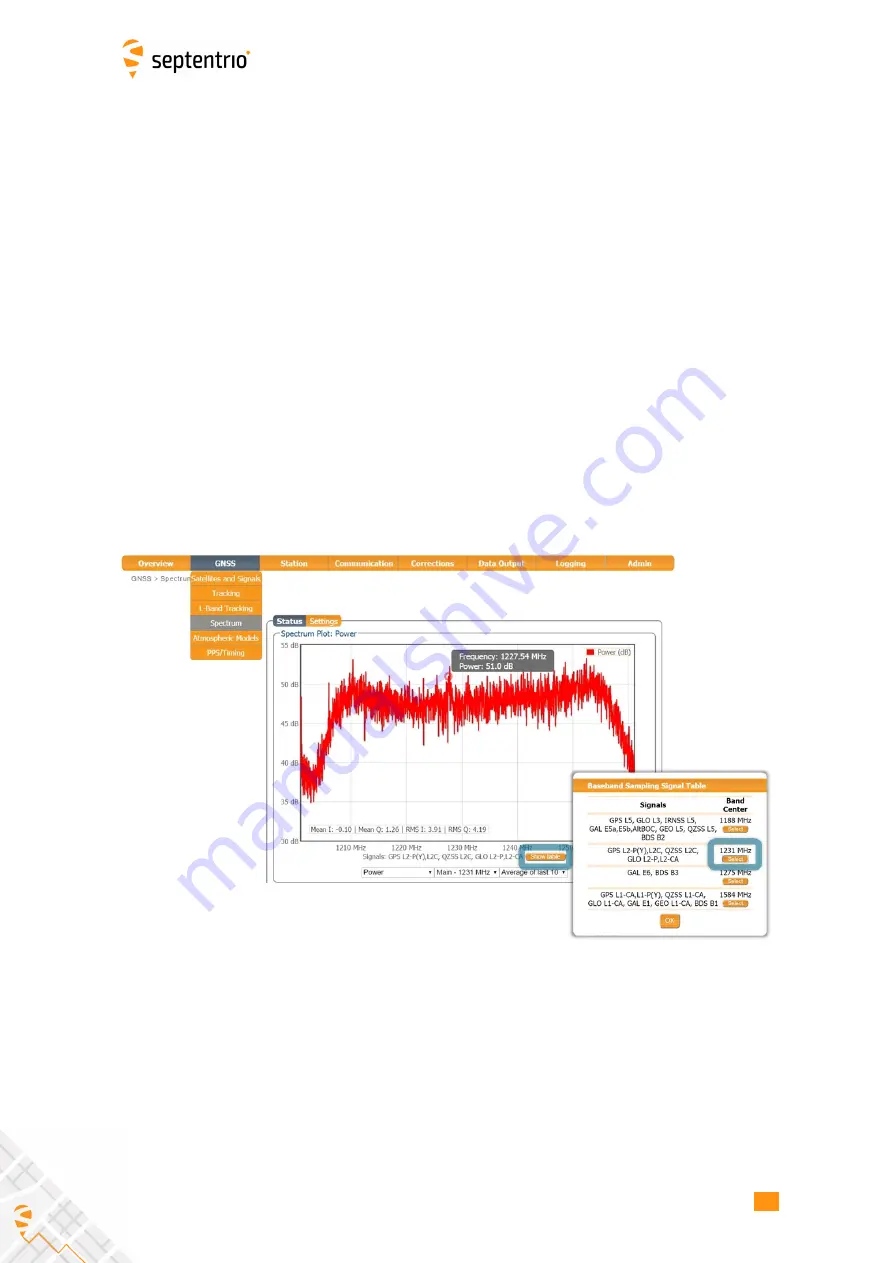
6.2. A
I
M+: DETECT
I
NG AND M
I
T
I
GAT
I
NG
I
NTERFERENCE
6.2 AIM+:
Detecting
and
mitigating
interference
The PolaRx5S is equipped with a sophisticated RF interference monitoring and mitigation
system (A
I
M+). To mitigate the e
ff
ects of narrow-band interference, three notch
fi
lters can
be con
fi
gured in either auto or manual mode. These notch
fi
lters e
ff
ectively remove a narrow
part of the RF spectrum around the interfering signal. The L2 band being open for use by
radio amateurs is particularly vulnerable to this type of interference. The e
ff
ects of wideband
interference both intentional and unintentional can be mitigated by turning on the WB
I
mitigation system. The WB
I
system also reduces, more e
ff
ectively than traditionally used
pulse-blanking methods, the e
ff
ects of pulsed interferers.
The spectrum view plot
I
n the Spectrum window of the GNSS menu, you can monitor the RF spectrum and con
fi
gure
three separate notch
fi
lters to cancel out narrowband interference. Figure 6-2 shows the L2
frequency band with the GPS L2P signal at 1227.60 MHz indicated. Di
ff
erent bands can be
viewed by clicking on the
‘
Show table
’
button as shown. The spectrum is computed from
baseband samples taken at the output of the receiver
’
s analog to digital converters.
Figure 6-2:
The RF spectrum of the L2 Band
63
Summary of Contents for PolaRx5S
Page 1: ...PolaRx5S User Manual ...
Page 102: ...6 In the File Naming tab select manual file naming and provide a file name 102 ...
Page 107: ...107 ...
















































